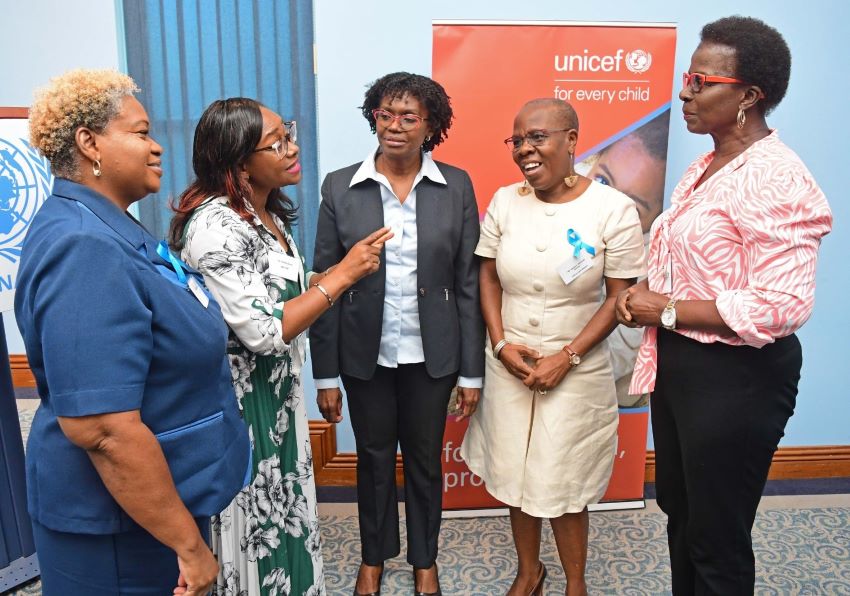
Media reports on cases of child abuse should never put the victim at risk.
This was emphasised yesterday by Director of the Child Care Board (CCB), RoseAnn Richards, as she addressed a media stakeholders’ workshop on The Role of the Media in the Coverage and Reporting of Child Abuse Cases.
The event was hosted by the CCB, in collaboration with UNICEF, at United Nations House, Marine Gardens, St. Michael. It formed part of the activities to mark Child Month.
Ms. Richards, while noting that the reporting of such cases was of great concern to the CCB, said: “The Child Care Board is eager to have the matter of children reported on and given full media coverage. However, reporting on children and young people should be done in such a manner that the subjects of the reports should never be placed at risk.
“The interest of the public must be served in educating them and sensitising them to the harm done to children. But, the rights of our children must never be compromised. Our children must never be left to feel as if they brought harm to themselves.”
Adding that confidentiality remains one of the key tenets of the social work profession, the Director stressed that in reporting on children, every effort must be made to protect the child’s rights and privacy and this meant “desisting from publishing any story that is of such a sensitive nature that will place the child, his siblings, peers, and family at further risk”.
Media representatives heard that efforts to interview children should only be done under certain conditions. They were told that the child’s parents should consent or grant permission; they needed to let the child know that he/she is talking to media personnel/reporters and use language that is age appropriate. Furthermore, it was noted that they should not expose the child to further harm or risk; and that excessive details and wording could also prove problematic.
Ms. Richards also pointed out that media personnel should desist from re-traumatising victims by the way in which they present the news story and urged that they also look at what is public safety, education, and a call to act, and what may be harmful. Those gathered were further urged to familiarise themselves with the law and how the age factor may change regarding how they report and what was also reported by them.
The CCB Director encouraged all media practitioners to access a copy of the new child protection legislation when enacted, as well as the new Child Justice Bill and the Cybercrime Bill. While also calling on them to be part of the solution in their reporting of child abuse, she stated: “Good reporting can improve understanding of how child abuse happens; bring about discussion which can help to make society safer for children and with respect to language, I urge you to use words such as survivor instead of victim and sexual abuse material instead of child pornography, and child sexual exploitation instead of an affair with a child.
Meanwhile, Chairman of the CCB, Catherine Jordan, stressed the need for clear understanding of the type of relationship which should exist between the media and the Board, as matters arise concerning minors.
She noted there should “really be no discord or dissonance” between the two groups and expressed the hope that the workshop would be the start of such a relationship.
“We all agree at the Child Care Board that the business of minors should be told by the parent and not the child or the Child Care Board on behalf…. Minors don’t have the right to speak for themselves and for you to talk to them,” Ms. Jordan said.
Acknowledging that the objective of the workshop was about all persons operating “in the best interest of children”, the Chairman said in addition to discussing the coverage and reporting of child abuse cases, the workshop aimed to address the creation of working protocols “to guide the investigative process that would allow the victim’s story to be told in a manner that would uphold the children’s dignity and would minimise, if not totally eliminate in his mind any victimisation.”
